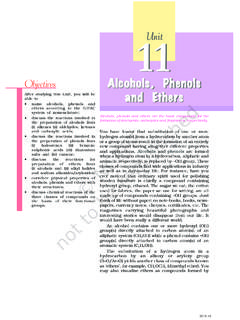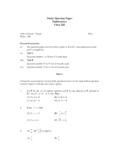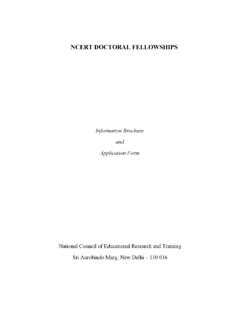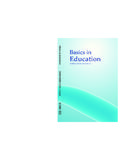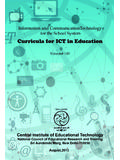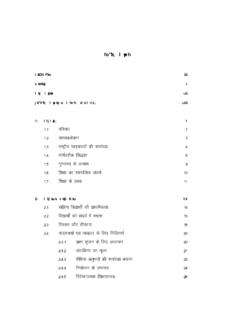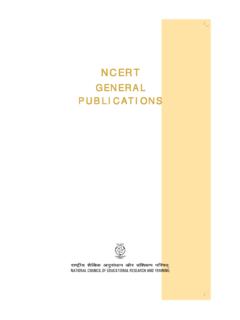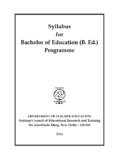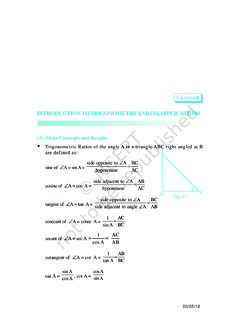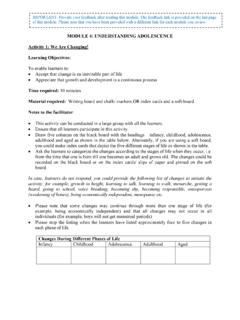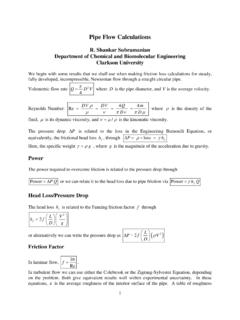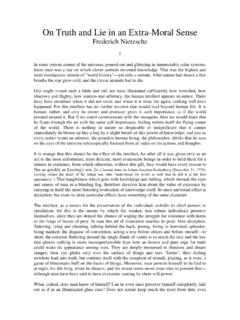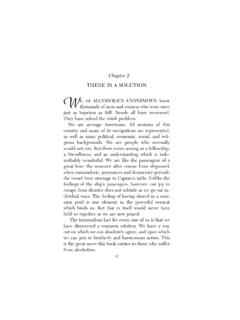Transcription of Confronting Chapter 8 Marginalisation
1 Social and Political Life94 Chapter 8 ConfrontingMarginalisationIn the previous Chapter , we read about two differentgroups and their experiences of inequality anddiscrimination. Though powerless, such groups havefought, protested and struggled against being excludedor dominated by others. They have attempted toovercome their situation by adopting a range ofstrategies in their long history. Religious solace, armedstruggle, self improvement and education, economicuplift there appears to be no one way of doing all cases, the choice of struggle has depended onthe circumstances that the marginalised findthemselves this Chapter , we will read about some of the ways inwhich groups and individuals challenge existinginequalities.
2 Adivasis, Dalits, Muslims, women and othermarginal groups argue that simply by being citizens ofa democratic country, they possess equal rights thatmust be respected. Many among them look up to theConstitution to address their concerns. In thischapter, we will see why the Constitution of India issomething that marginalised groups invoke in thecourse of their struggles. As part of this, we will lookat how rights are translated into laws to protect groupsfrom continued exploitation and we will also look atthe government s efforts to formulate policies topromote the access of these groups to MarginalisationThe term Dalit, which means broken is used deliberately andactively by groups to highlight thecenturies of discrimination theyhave experienced within the Constitution, as you have learnt in the first Chapter ofthis book, lays down the principles that make our societyand polity democratic.
3 They are defined in and through thelist of Fundamental Rights that are an important part of theConstitution. These rights are available to all Indians far as the marginalised are concerned, they have drawnon these rights in two ways: first, by insisting on theirFundamental Rights, they have forced the government torecognise the injustice done to them. Second, they haveinsisted that the government enforce these laws. In someinstances, the struggles of the marginalised have influencedthe government to frame new laws, in keeping with the spiritof the Fundamental 17 of the Constitution states that untouchability hasbeen abolished what this means is that no one canhenceforth prevent Dalits from educating themselves,entering temples, using public facilities etc.
4 It also means thatit is wrong to practise untouchability and that this practicewill not be tolerated by a democratic government. In fact,untouchability is a punishable crime are other sections in the Constitution that help tostrengthen the argument against untouchability forexample, Article 15 of the Constitution notes that no citizenof India shall be discriminated against on the basis ofreligion, race, caste, sex or place of birth (you learnt a lotabout this in your Class VII textbook in the Chapter onEquality). This has been used by Dalits to seek equalitywhere it has been denied to Fundamental RightsChapter 8: Confronting Marginalisation2021-22 Social and Political Life96 The poem below is written bySoyrabai, the wife of the well-known Bhakti poet Chokhamelafrom fourteenth centuryMaharashtra.
5 They belonged tothe Mahar caste, which was atthat time body is unclean, they sayOnly the soul is untaintedBut the impurity of the bodyIs born within the which ritual does the bodybecome pure?Not a creature has been bornexcept in a bloody is the glory of God,Defilement exists body is polluted from within,Be sure of it says the MahariChokhaQuoted in Uma Chakravarti, Gendering Caste: Through aFeminist Lens, Stree, 2003, p. 99 Soyrabai is questioning the ideaof purity and arguing that sinceevery human is born in the samemanner, there is nothing thatmakes one body less or morepure than the other. She ispossibly also trying to say thatpollution, a key tool of the castesystem to separate or denypeople access to spaces, work,knowledge and dignity, occursnot through the nature of workdone, but from within - fromyour thoughts, values , Dalits can invoke or draw on a FundamentalRight (or Rights) in situations where they feel that theyhave been treated badly by some individual or community,or even by the government.
6 They have drawn the attentionof the government of India to the Constitution, demandingthat the government abide by it and do justice to , other minority groups have drawn on theFundamental Rights section of our Constitution. They haveparticularly drawn upon the right to freedom of religionand cultural and educational rights. In the case of culturaland educational rights, distinct cultural and religious groupslike the Muslims and Parsis have the right to be theguardians of the content of their culture, as well as the rightto make decisions on how best this content is to bepreserved. Thus, by granting different forms of culturalrights, the Constitution tries to ensure cultural justice tosuch groups. The Constitution does this so that the cultureof these groups is not dominated nor wiped out by theculture of the majority for the MarginalisedAs you have read, the government makes laws to protectits citizens.
7 Yet, this is not the only way in which it takesaction. There are specific laws and policies for themarginalised in our country. There are policies or schemesthat emerge through other means like setting up acommittee or by undertaking a survey etc. The governmentthen makes an effort to promote such policies in order togive opportunities to specific Social JusticeAs part of their effort to implement the Constitution, bothstate and central governments create specific schemes forimplementation in tribal areas or in areas that have a highDalit population. For example, the government provides forfree or subsidised hostels for students of Dalit and Adivasicommunities so that they can avail of education facilities thatmay not be available in their 8: Confronting MarginalisationIn addition to providing certain facilities, the governmentalso operates through laws to ensure that concrete steps aretaken to end inequity in the system.
8 One such law/policy isthe reservation policy that today is both significant and highlycontentious. The laws which reserve seats in education andgovernment employment for Dalits and Adivasis are basedon an important argument- that in a society like ours, wherefor centuries sections of the population have been deniedopportunities to learn and to work in order to develop newskills or vocations, a democratic government needs to stepin and assist these does the reservation policy work? Governments acrossIndia have their own list of Scheduled Castes (or Dalits),Scheduled Tribes and backward and most backward central government too has its list. Students applying toeducational institutions and those applying for posts ingovernment are expected to furnish proof of their caste ortribe status, in the form of caste and tribe certificates.
9 (Manygovernment and educational institutions also ask forcandidates to mention their caste/tribe status.) If a particularDalit caste or a certain tribe is on the government list, then acandidate from that caste or tribe can avail of the benefit admission to colleges, especially to institutes ofprofessional education, such as medical colleges, governmentsdefine a set of cut-off marks. This means that not all Dalitand tribal candidates can qualify for admission, but only thosewho have done reasonably well and secured marks above thecut-off point. Governments also offer special scholarships forthese students. In your Class IX Political Science textbook,you will read more on reservations for the backward one reason why youthink reservations play animportant role in providingsocial justice to Dalits andAdivasis?
10 List of schemesWhat is thisHow do you think it will help promotescheme about?social justice?Scholarships for studentsSpecial police stationsSpecial schemes for girlsin government schoolsQ2021-22 Social and Political Life98 You may have read Kabir spoems in your languagetextbooks. Kabir was a fifteenthcentury poet and weaver whoalso belonged to the Bhaktitradition. Kabir s poetry spokeabout his love for the supremebeing free of ritual and also expresses his sharp andpointed criticism of those hesaw as powerful. Kabir attackedthose who attempted to defineindividuals on the basis of theirreligious and caste his view every person hadthe ability to reach the highestlevel of spiritual salvation anddeep knowledge withinthemselves through their ownexperience.
